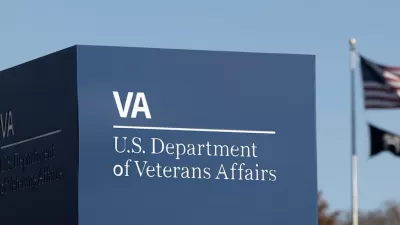VA home loan guaranties and community land trusts are perfect partners—but not everyone knows that yet.
By Emily Seibel
Brett Henderson has been an Army veteran for over 17 years. He grew up in Ohio and moved back from Los Angeles with his wife, Isis, when they married. They fell in love with the eclectic, artsy community of Yellow Springs, home of Antioch College, where they rented a small two-bedroom apartment while looking for a house in which to raise their future family.
Property values in Yellow Springs were significantly higher than those in most other Ohio towns, but they still found a dream home: an affordable, new construction, highly energy-efficient starter home, offered by local housing nonprofit Yellow Springs Home, Inc. through the community land trust (CLT) homeownership model.
If Henderson could get a Dept. of Veterans Affairs guaranteed mortgage, with its low to no downpayment requirement, they would be able to buy this home.
But to make it work, Yellow Springs Home first had to get the regional VA office to be officially willing to guarantee a loan for a community land trust purchase, something many lenders are unfamiliar with and wary of.
VA Loans and CLTs: A Match
In the CLT model, the land trust sells the house, but keeps ownership of the land, giving owners a 99-year ground lease. It works by lowering the base price of a home to an affordable level through a one-time subsidy. In return, if selling, the homeowner must sell to another underserved buyer for a reduced price, paying forward some of the help they received while earning a return on their investment. The CLT model is designed not only to provide homeownership opportunities to low- to moderate-income households, but also to keep the homes affordable for succeeding generations of buyers. Much of the subsidy stays with the home, stretching its impact while also creating wealth.
The CLT goal of extending sustainable homeownership to more households aligns with the goals of VA loans. The Hendersons are part of a new generation to qualify for a range of housing benefits through the VA’s Home Loan Guaranty Program, which has helped service members, veterans, and eligible surviving spouses become and remain homeowners since 1944.
VA loans have competitive interest rates, and often don’t require any downpayment. In 2013 alone, nearly 630,000 loans were guaranteed by the VA. More than 200,000 of those did not have a downpayment.
A one-time funding fee rolled into the loan acts in lieu of private mortgage insurance, further reducing monthly payments. To be eligible, a veteran household must have a good credit score, sufficient income, meet certain service requirements, and have a valid Certificate of Eligibility. The products work with a variety of private lenders and mortgages, including CLT mortgages.
The VA program and CLTs also align well in their concern for the long-term success of their borrowers. VA loans come with post-purchase services to prevent foreclosure—the VA oversees mortgage loan servicers to ensure that they offer options for home retention and alternatives to foreclosure. CLTs use their ongoing relationship with the owners as an opportunity to exercise stewardship through a range of in-depth pre- and post-purchase support services to promote successful homeownership and prevent foreclosure. Nationally, CLT homeowners are far less likely to return to renting or to go through foreclosure than market-rate homeowners.
Despite this alignment, not all VA regional offices are familiar with land trusts, so CLTs wanting to help veterans buy their homes using the VA program may have some legwork to do.
FULL STORY: Vets Get Access to Land Trust Homeownership

Maui's Vacation Rental Debate Turns Ugly
Verbal attacks, misinformation campaigns and fistfights plague a high-stakes debate to convert thousands of vacation rentals into long-term housing.

Planetizen Federal Action Tracker
A weekly monitor of how Trump’s orders and actions are impacting planners and planning in America.

Chicago’s Ghost Rails
Just beneath the surface of the modern city lie the remnants of its expansive early 20th-century streetcar system.

Bend, Oregon Zoning Reforms Prioritize Small-Scale Housing
The city altered its zoning code to allow multi-family housing and eliminated parking mandates citywide.

Amtrak Cutting Jobs, Funding to High-Speed Rail
The agency plans to cut 10 percent of its workforce and has confirmed it will not fund new high-speed rail projects.

LA Denies Basic Services to Unhoused Residents
The city has repeatedly failed to respond to requests for trash pickup at encampment sites, and eliminated a program that provided mobile showers and toilets.
Urban Design for Planners 1: Software Tools
This six-course series explores essential urban design concepts using open source software and equips planners with the tools they need to participate fully in the urban design process.
Planning for Universal Design
Learn the tools for implementing Universal Design in planning regulations.
planning NEXT
Appalachian Highlands Housing Partners
Mpact (founded as Rail~Volution)
City of Camden Redevelopment Agency
City of Astoria
City of Portland
City of Laramie





























